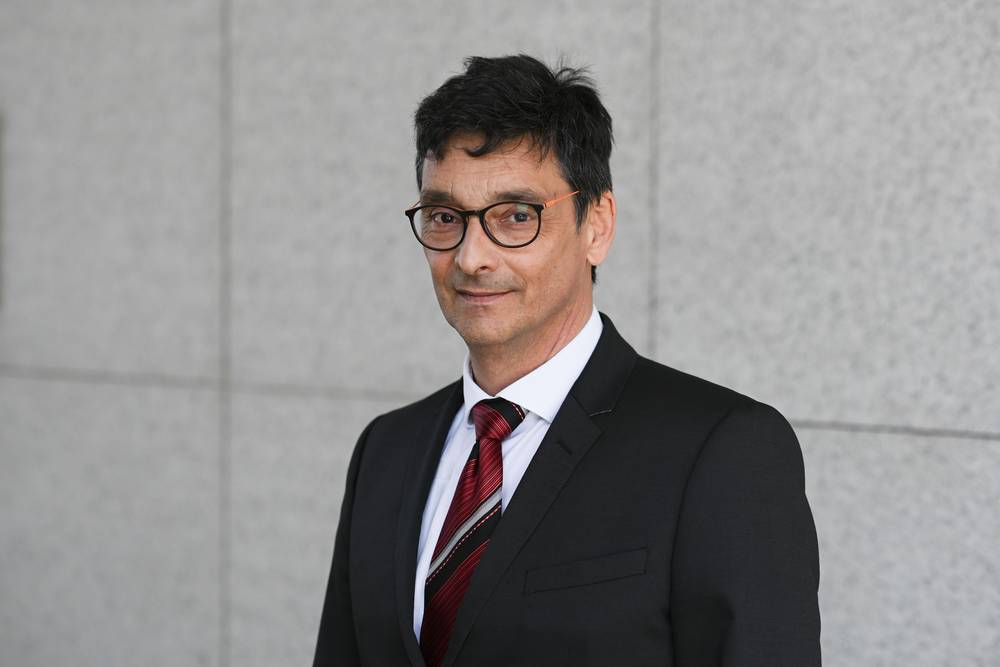Today, on 11 October 2022, in the National Assembly of the Republic of Slovenia, the Ombudsman Peter Svetina presented two reports for 2021, the report of the Ombudsman of the Republic of Slovenia and the report on the implementation of the tasks of the National Preventive Mechanism, at the working body of the National Assembly of the Republic of Slovenia – the Commission on Petitions, Human Rights and Equal Opportunities.
In 2021, the Ombudsman dealt with one third more cases than in previous years. The Ombudsman dealt with almost 7,000 cases and found 276 violations of rights and other irregularities, mostly related to equality before the law, the principle of good administration, the principle of fairness and the right to social security. As a result of its activities, the Ombudsman made 86 new recommendations in 2021.
Among the current recommendations, the Ombudsman particularly highlighted the recommendation to the Ministry of Health and the Health Insurance Institution of Slovenia (HIIS) to allow insured persons to pay extra for above-standard services. "It is incomprehensible that, for example, if a patient opts for an above-standard lens, they are not entitled to the right of payment from the health insurance that would otherwise belong to them if they had opted for a standard lens. In such cases, the rationale of compulsory insurance is called into question, as the patient has no choice as to the treatment they receive, even though they are obliged to pay the compulsory insurance. We expect the HIIS to pay the patient the amount of the standard service and the patient to pay the difference themselves," Ombudsman Svetina said in his presentation to the members of the parent working body.
Although the Ombudsman's recommendations are not legally binding, their implementation by the competent authorities is an indicator of the extent to which they are actually committed to strengthening respect for human rights and fundamental freedoms. " I expect the Government of the Republic of Slovenia to ensure that the competent authorities begin efficiently realising substantively unrealised recommendations which the Ombudsman has been highlighting for several years, and to this end, the authorities will also cooperate if necessary. The responsibility lies with the Government, and I expect active coordination, possibly by the Prime Minister's Office if not otherwise," emphasised the Ombudsman.
As he said, human rights are not just a remote legal concept but must be guaranteed to everyone. In this context, adequate mechanisms and remedies must also be available to individuals in order to remedy violations. "We have noted, for example, that a warning prior to dismissal, which may later result in actual dismissal, is not subject to judicial protection, even though it is a sanction in its own right. We call for this area to be properly regulated as soon as possible," said Ombudsman Peter Svetina.
Last year, the Ombudsman also focused on various vulnerable groups, such as children, people with disabilities, the elderly, women, national and ethnic communities, employees, the unemployed, religious communities, LGBTIQ+ and foreigners. The Ombudsman considers it unacceptable to marginalise any vulnerable group and to ignore their constitutionally guaranteed rights.
"We reiterate our call on the Ministry of Labour, Family, Social Affairs and Equal Opportunities (MDDSZ) to finally commence deinstitutionalisation. I have been warning about this since the beginning of my mandate, but nothing significant has changed since then. Failure to implement deinstitutionalisation constitutes a violation of the United Nations Convention on the Rights of Persons with Disabilities. I have repeatedly pointed out that the current situation is not in favour of persons with disabilities and that the Ombudsman, as an institution with A status under the Paris Principles, is ready to take on the responsible and challenging task of becoming an independent body to promote, protect and monitor the implementation of this Convention," said Ombudsman Svetina.
He added that the country must simultaneously adopt a deinstitutionalisation strategy for the elderly. Last year’s recommendation for the Ministry of Labour, Family, Social Affairs and Equal Opportunities to introduce family assistance for families that care for children with special needs who are younger than 18 years with the objective to further reduce institutionalisation of children with special needs and realise their right to family life still remains unrealised. "For the same reason, we reiterate our recommendation that families caring for children with special needs should be assessed for lost income at least at the level of the minimum wage. It is unacceptable that the competent ministry considers that such a measure would require a comprehensive study and coordination with other ministries. I look forward to the implementation of our recommendation," clarified the Ombudsman.
The Ombudsman also presented before the parent working body the report of the National Preventive Mechanism (NPM), which visited 60 places of deprivation of liberty in 2021. Almost all of the visits were carried out without prior announcement. "In special social welfare institutions, we mainly checked the overcrowding of secure wards, which affects the quality of life of all residents, but also represents an increased workload for the employees. The unsustainable conditions in these wards, which have persisted for more than ten years, can undoubtedly be classified as ill-treatment of residents, for which the State is responsible," said Ombudsman Peter Svetina at the presentation of the NPM report.

![[Translate to English:] Varuh človekovih pravic](/fileadmin/_processed_/3/2/csm_varuh_nova_5_9a4e016ba3.jpg)